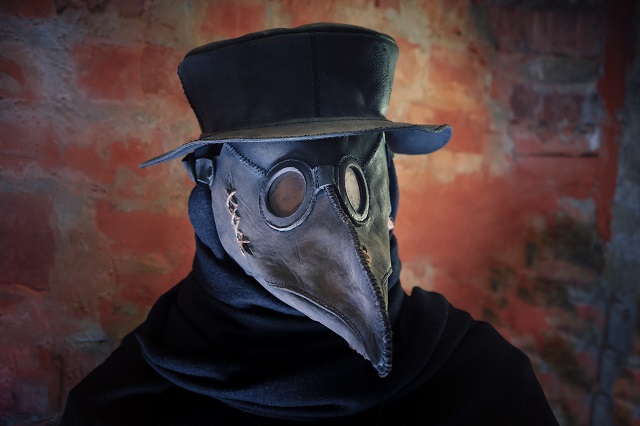
Credit: ChamilleWhite / Getty Images
It may feel as though we are living in unusual times, with all the strange precautions we have been forced to adopt to try and contain COVID-19, but plagues have afflicted humans for thousands of years.
The novel coronavirus is a threat “both wholly new and deeply ancient,” according to Nicholas Christakis, professor of social and natural science at Yale University, and the author of “Apollo’s Arrow: The Profound and Enduring Impact of Coronavirus on the Way We Live.”
Tapping into his experience as a hospice doctor in the early days of his career and his expertise in social networks, Christakis explains what it will take for citizens, leaders, and societies to work together to get through the current crisis and what we might expect when it is finally over.
Three Takeaways:
- Christakis has spent years researching how ideas, behaviors and germs spread through human social networks. In January 2020, Chinese colleagues tipped him off to the seriousness of COVID-19. He soon grasped the magnitude of the threat after studying the cell phone data of millions of people who traveled through the city of Wuhan, during the Lunar New Year celebrations.
- Epidemics are often accompanied by denial and misinformation, according to Christakis. “This is always seen during times of plague,” he explains, “because people don’t want to believe the bad thing that is happening.” Some of our leaders have lied to us, Christakis says, and what is needed now is, "a call to the American people to action, and to collective purpose and to joint sacrifice and to maturity,” to overcome the crisis.
- Although many of us may have pandemic fatigue, we are not out of the woods yet. Christakis thinks we are at the “end of the beginning” (to quote Winston Churchill) not the “beginning of the end,” of COVID. After widespread vaccinations, he predicts there will also be a period of recovery: “psychologically, socially, economically, [and] clinically,” likely through the end of 2023. Only after that will we reach a post-pandemic period and get to enjoy our own Roaring Twenties, similar to what was experienced following the 1918 flu pandemic.
More Reading:
- How many Americans have been infected with coronavirus? Here are some of the various different estimates which are considerably higher than the official count.
- Here’s the study that Christakis and his Chinese colleagues published in Nature at the beginning of the outbreak, after they dived into the cell phone data of millions of people who traveled through the city of Wuhan, during the Lunar New Year celebrations.
- Check out our previous conversation with economist Betsey Stevenson, about the disproportionate impact of COVID on working mothers.

